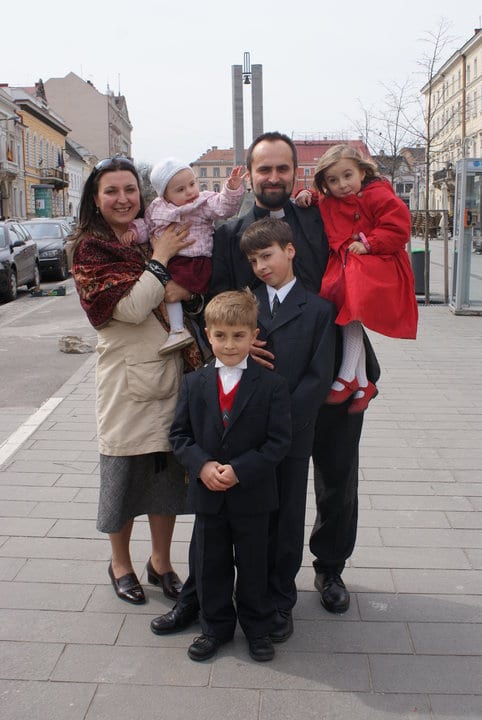
Reactionary Steve Skojec of One Vader Five infamy wrote in a combox of his site on 3-6-20:
Celibacy is fundamental to the priesthood. It’s not just a discipline, and never has been, no matter what our Eastern brothers tell us. It’s a concession.
And yes, changing celibacy in the Latin Rite — which has 98.5% of the Catholics in the world — absolutely fundamentally changes the priesthood, and breaks down barriers that advances the cause of changing the institution.
St. Peter, by the way, was a widower, as far as anyone knows. There’s mention in the Scriptures of his mother in law. Never of his wife.
Of course it’s a discipline (as opposed to a dogma, or intrinsic to the priesthood). The Catechism of the Catholic Church teaches:
1579 All the ordained ministers of the Latin Church, with the exception of permanent deacons, are normally chosen from among men of faith who live a celibate life and who intend to remain celibate “for the sake of the kingdom of heaven.” Called to consecrate themselves with undivided heart to the Lord and to “the affairs of the Lord,” they give themselves entirely to God and to men. Celibacy is a sign of this new life to the service of which the Church’s minister is consecrated; accepted with a joyous heart celibacy radiantly proclaims the Reign of God.
1580 In the Eastern Churches a different discipline has been in force for many centuries: while bishops are chosen solely from among celibates, married men can be ordained as deacons and priests. This practice has long been considered legitimate; these priests exercise a fruitful ministry within their communities. Moreover, priestly celibacy is held in great honor in the Eastern Churches and many priests have freely chosen it for the sake of the Kingdom of God. In the East as in the West a man who has already received the sacrament of Holy Orders can no longer marry.
Skojec can’t (and therefore doesn’t) deny that Peter was married, at least in the past (based on the “mother-in-law “passages: Mk 1:29-31; Mt 8:14-15; Lk 4:38-39). He says he was a widower at the time recorded by the gospels. Maybe he was. We don’t know for sure. But he could possibly have been presently married. How do we know that? We know from the following passage, which specifically references at least some of the apostles having “left” a living wife for the sake of ministry:
Luke 18:28-30 (RSV) And Peter said, “Lo, we have left our homes and followed you.” [29] And he said to them, “Truly, I say to you, there is no man who has left house or wife or brothers or parents or children, for the sake of the kingdom of God, [30] who will not receive manifold more in this time, and in the age to come eternal life.”
We presume that in such cases the wives (and children, as the case may be), agreed with the resolve (somewhat like, for example, Billy Graham, who had to often leave his wife and family for long periods of time in order to evangelize). It’s right there in Scripture. It’s not incompatible to be married and also to be a priest or even a bishop. And there are many examples in history of that.
1 Timothy 3:1-5 The saying is sure: If any one aspires to the office of bishop, he desires a noble task. [2] Now a bishop must be above reproach, the husband of one wife, temperate, sensible, dignified, hospitable, an apt teacher, [3] no drunkard, not violent but gentle, not quarrelsome, and no lover of money. [4] He must manage his own household well, keeping his children submissive and respectful in every way; [5] for if a man does not know how to manage his own household, how can he care for God’s church?
If the intent was to talk only about widowers, or was forbidding marriage to the bishop altogether, surely the text would have made that clear. But it doesn’t. It casually assumes that a bishop would have a wife and children (just as a later passage — 3:12 — assumes about deacons). These things aren’t presented as if they were only in the past.
There were even three popes who were married during their papacies: Pope Adrian II (r. 867-872), Pope John XVII (r. 1003), and Pope Clement IV (r, 1265-1268).
Therefore, on these two biblical grounds, marriage is perfectly compatible with being a priest or a bishop or a pope. Ergo: celibacy cannot possibly be said (based on inspired revelation in Scripture) to be inherent or intrinsic or essential or “fundamental” to any of these offices (let alone be a dogma).
***
Photo credit: Ogni (3-10-13). Eastern Catholic priest from Romania with his family. [Wikimedia Commons / Creative Commons Attribution-Share Alike 3.0 Unported license]
***












